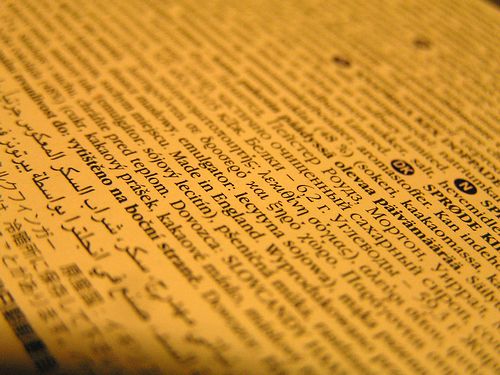“Bite your tongue,” my friend Beth says. We’re at a bridal shower for a mutual friend, and the topic of in-laws has come up. “Always remember that the way his family does things isn’t right or wrong, it’s just different from how your family does things.”
Different. I like the word, its ambiguity and neutrality. I’ll go one step further and suggest that these differences, so unavoidable in the coming together of families, can institute a type of culture shock. Consider the elements–the people look familiar, the traditions reminiscent of one’s own family rituals, the customs near-replicas of one’s own, yet slight tweaks abound, often in unexpected places. Assimilation is not an instant process, or an easy one.
The first time I had dinner with Andy’s family, years ago, I was stunned by the intimacy of the meal—just six of us around the table, with several pauses in conversation, during which I could hear silverware clink against china, the ice cubes rattle in glasses. Not used to such quiet, I attempted to fill the silences with mindless chatter, playing the fool as everyone else politely listened and enjoyed their meal.
Conversely, when Andy came to have his first dinner with my extended family, fifteen of my loud Irish-Italian-Polish relatives greeted us with a collective roar as we walked in the door. I can only imagine his own sense of culture shock throughout supper as multiple conversations zigged and zagged across the room, from one end of the table to the other, shouts and interruptions being the standard form of discourse. At first, Andy came off as shy, preferring to observe and listen; nowadays he can keep up with the best of us, thought I’d hesitate to claim it comes naturally.
When one enters a lifelong relationship, it seems too that one signs up to learn a new language and culture, one only associated with a small tribe, but essential knowledge nonetheless. Getting to know a new family starts the process of the ongoing education. As the relationship grows and deepens, so too does the understanding of the overall family environment.
Like any expatriate, though, I sense that the culture will never be fully my own. It’s one that will become increasingly comfortable to me, and one I can converse in with ease, yet I comprehend I will never be fully fluent. It’s a welcoming place, don’t get me wrong–but I’m too late in the arrival, a first-generation immigrant and naturalized citizen, rather than a native.
Additionally, I’ve noticed over the years that Andy and I have created a family culture of our own. We communicate in shorthand, based on our shared experiences, and have inside jokes that make sense to us alone. Our weeknight post-work rituals are well established, our cuisine and holiday traditions take their own unique shape. Others outside the relationship (including our extended family) may find adapting to our newer culture has a bit of a learning curve for them, too.
In regard to the in-laws and my husband’s culture, I hope that my assimilation improves each year. During a Christmas visit several years back, we spent the bulk of the holiday with my family, a raucous multi-day gathering of cooking, feasting, music, and gift-giving. We then headed to Andy’s parents’ home for a post-holiday get-together. I sat on the couch with a glass of wine the first evening we were there, basking in the quiet. Nearby, Andy’s mother stretched out in her easy chair, scanning the latest offerings on the DVR. It was a perfect contrast to the chaotic hubbub of my family’s home, and I found an appreciation that hadn’t existed in those first years of initial exposure and rapid learning.
It makes perfect sense, though, this growing contentment as the culture grows ever more familiar. After all, I had fallen in love with the ambassador of the host country, this host family. This place, these people, were an extension of him. They had shaped him into the person he had become, and despite any cultural misunderstandings that lay ahead, knew their influence would be equally positive on us.
Photo courtesy nofrills via Flickr Creative Commons

